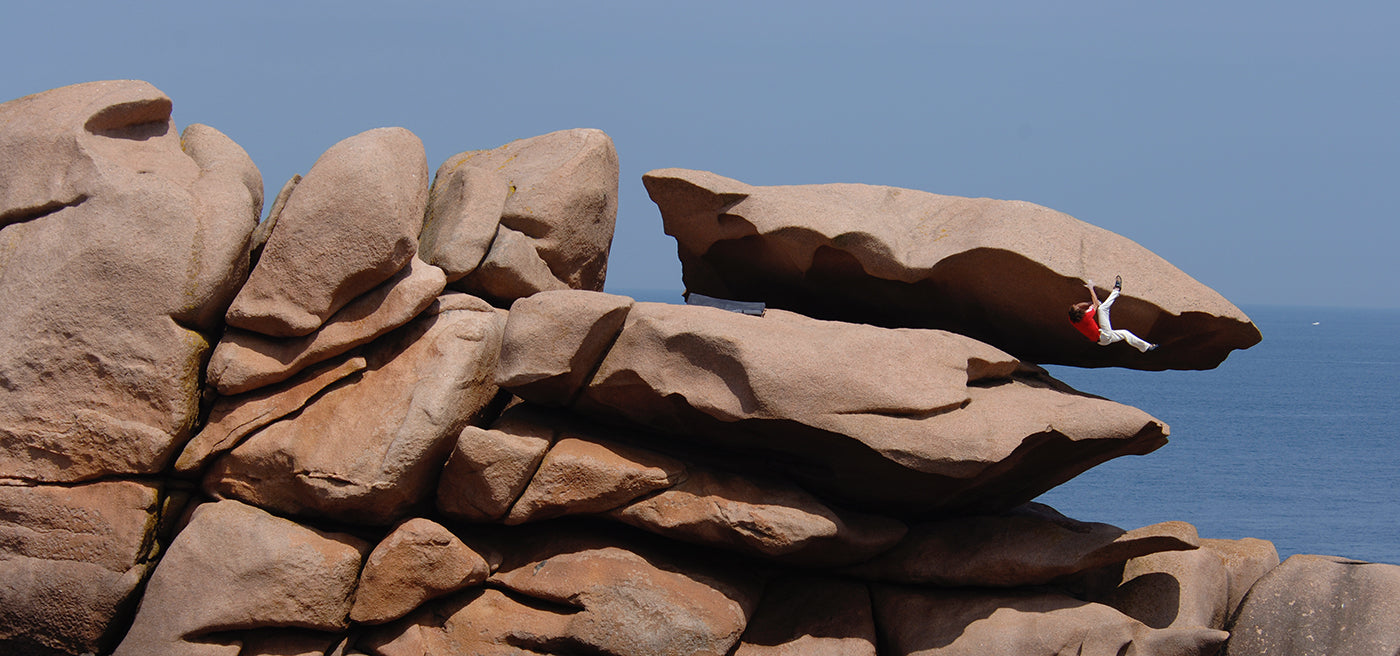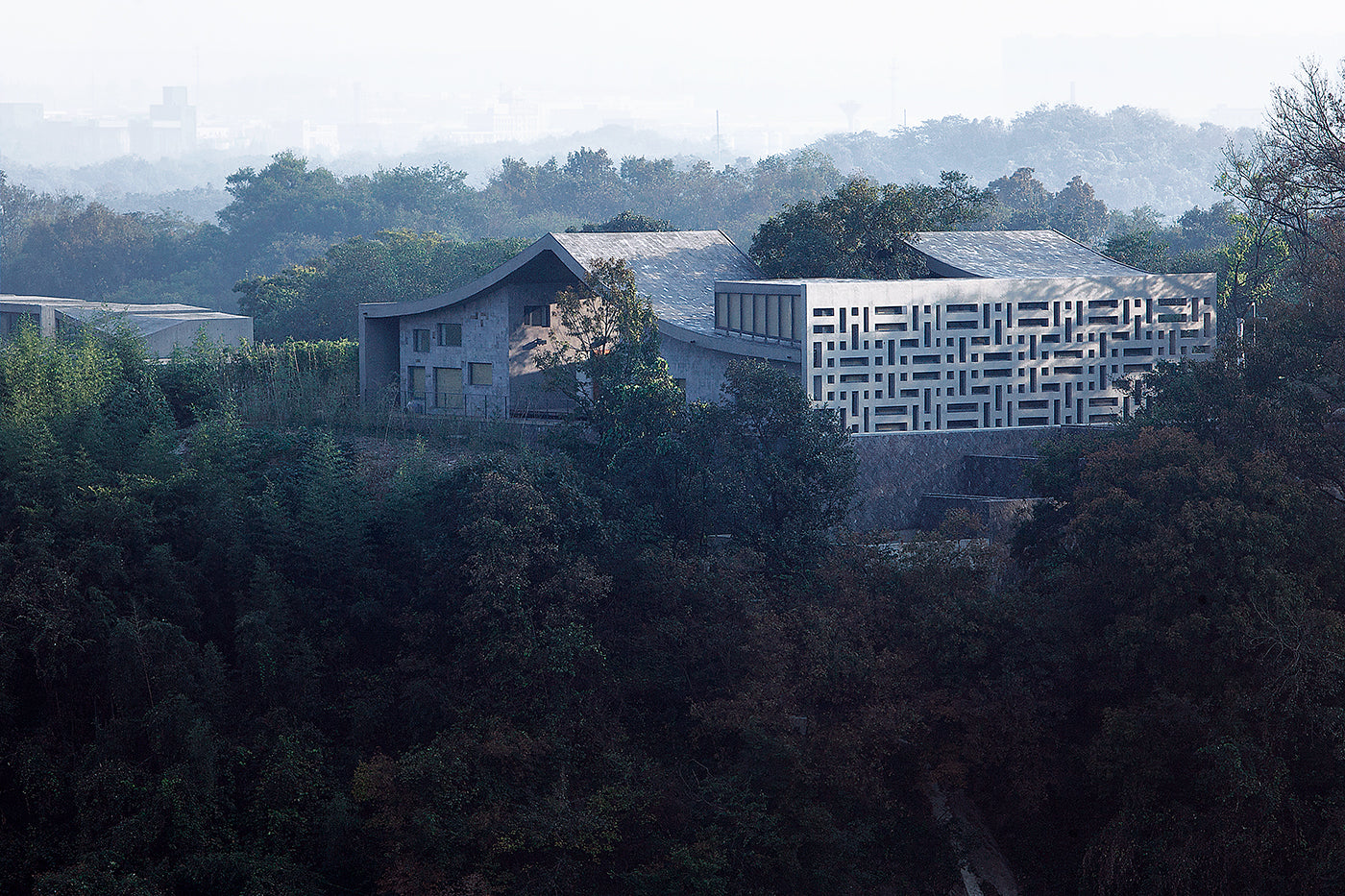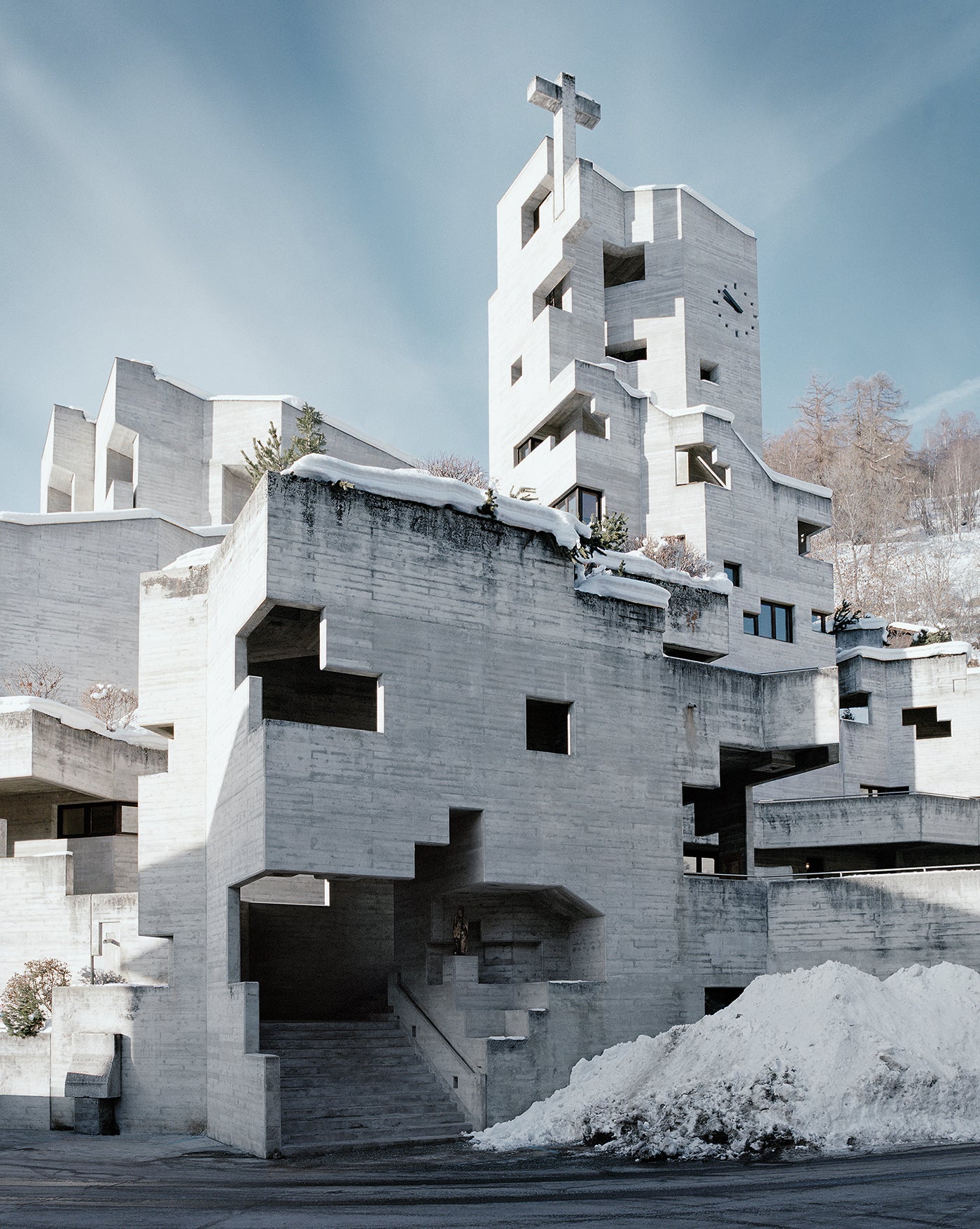
Bernd Zangerl on Becoming A Bouldering Prodigy
One of the greatest climbers of all-time makes his gestalten debut
Bouldering is the physical embodiment of problem-solving. It is a form of exercise where the individual needs to find one's path and determine what works for their own ability. Unlike other intense workouts that punish the body, bouldering takes you on a mental journey through pure concentration to accomplishment. Known as the "Professor" of contemporary bouldering, Bernd Zangerl talks us through his gestalten debut and the art of recovery.
Regarded as one of the most gifted boulderers of all-time, Austrian-born Zangerl was immersed in the sport as a young child and grew to become an iconic figure of alpine climbing. In 2015, while bouldering in Switzerland's Cresciano, he fell and had to cease climbing for 489 days. "I am a very patient person," he explains, "bouldering teaches you patience." During this time of mental reflection and physical healing, he was able to concentrate on other projects, one of which was publishing.
"There are only limits when you accept them," is a phrase Zangerl lives by. For him and countless others, the sport goes beyond a pastime, instead, it represents a way of life and community. Our latest release, Bouldering brings this world into a beautifully curated printed testament to the sport's inspirational figures and showcases the different motifs that define the lifestyle. No harness or strings attached, this is visual documentation that reveals how this activity can teach the body and mind new limits. Zangerl sits down with us to discuss his passion, becoming a superstar in his field, and what he hopes this book can teach beginners and climbing veterans.

For Zangerl, the Shangri-La boulder (8A) is an ideal retreat from the world. His climbing paradise is located in a valley near the Kinnaur Kailash, which is considered the winter residence of the god Shiva and a sanctuary for Buddhists and Hinduists. (Photo: Ray Demski, Bouldering)
You climbed Eisenspitze (a 2,859m mountain in Austria) at age seven and have been involved in climbing from a very early age. What was your route into climbing and how did you make it your career?
Going up the mountains or climbing was just something normal for me, besides school. I tried to spend as much time as possible on the rocks and in the mountains. In the beginning, I was more of an alpinist, climbing snowy and icy peaks in Europe, but after a scary rockfall experience, I started to focus on sport climbing. I wanted to get stronger and to climb more difficult routes in the mountains. In 1999, I made my first trip to Ticino (Switzerland) for a bouldering session. After all those years in the big mountains, I finally found what I was looking for and bouldering became my real passion over the next decades.
You are often known as the “Professor” of bouldering and refer to yourself as a “natural born free climber.” How does it feel being an icon of bouldering? Do fellow athletes or aspiring ones ever contact you for advice?
It makes me happy that my ideas, techniques, and thoughts are noticed in the scene and that I can write regularly about certain topics for print or online media. I have seen a lot of change in the past, and as an 'icon,' I find it important to stand up and say something when certain things are going in a direction that is not so positive. People from all over the world contact me sometimes for pieces of advice or asking for pieces of information. I like that—but I don't feel like an "icon."

In Magic Valley (Hamachal Pradesh, India), Zangerl has, along with the local population, developed a strategy to deal with bouldering. It is necessary to regulate the influx of tourists to preserve the area for the future. (Photo: Ray Demski, Bouldering)
What is the beauty of bouldering? Why do you think so many people have connected with the sport in the past two decades?
It's so simple, it's playful and so natural for us humans that I wonder in which direction it will evolve in the future. Just watch the kids and see how quickly they get into it and how good it is for them to develop both physically and mentally. Bouldering is so complex, it offers so many positive effects in our everyday life, that it is not easy to describe with some phrases. But to break it down, for me, it's the fun of movement, the crazy challenges, and projects I can work on. On top of that, I can experience a beautiful day outside in nature or with my best friends.
When you said "first ascents are the most creative and beautiful thing about bouldering," what did you mean by that?
When you make a FA (first ascent), you create something new, a line which nobody has seen before. When you repeat a route, you just know that it goes, because somebody has climbed the route before you. I love to look for rocks and lines which haven't been climbed yet. It's a very intense experience, somehow just a game to make the impossible, possible.

"Anyone who spends five hours traveling in order to try out two moves on some unknown block of rock, which has not as yet been solved by anyone, is surely going to be considered crazy. For me, this was a totally normal thing to do," Zangerl explains in the book. (Photo: Ray Demski, Bouldering)
The art of recovery: After suffering a fall and spending 18 months away, what kept you motivated during that time, and did it give you a renewed perspective?
Mentally it was a wild and intense journey. I learned a lot about myself during those days. I kept on trying and training because deep in my heart I knew it’s not over yet. The doctors and scientists know a lot, but not everything. I trusted in myself. Bouldering is a good sport to learn this.
Pure focus and the art of learning how to move on from failure, Bouldering is the comprehensive guide to the contemporary of the sport and culture.


